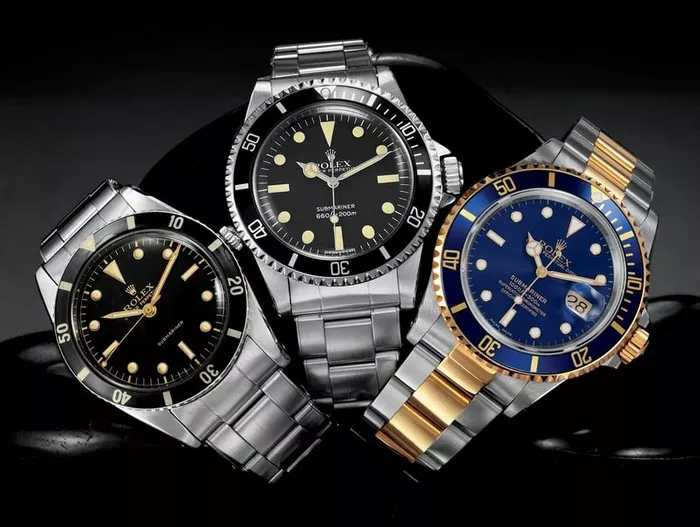When it comes to luxury timepieces, Rolex stands out as a symbol of prestige and craftsmanship. One common question among watch enthusiasts and potential buyers is whether a genuine Rolex watch makes a ticking sound. This query is not just about curiosity; it touches on the underlying mechanics of watchmaking and what distinguishes a Rolex from other timepieces.
The Mechanism Behind Ticking Sounds
To understand whether a real Rolex makes a ticking sound, it is essential first to grasp the basics of watch mechanisms. There are generally two types of watches: quartz and mechanical.
Quartz Watches: These watches are powered by a battery and use a quartz crystal to regulate timekeeping. The ticking sound in quartz watches is often quite noticeable. This is because the movement is driven by an electronic oscillator that creates a distinct, regular ticking noise as it powers the watch’s hands and mechanisms.
Mechanical Watches: Mechanical watches, which include both manual and automatic varieties, use a complex system of gears and springs to keep time. They do not rely on batteries but rather on a meticulously engineered movement that requires regular winding (for manual watches) or the natural motion of the wearer’s wrist (for automatic watches).
Rolex and Ticking Sounds
Rolex watches are renowned for their mechanical precision. Each Rolex timepiece is a product of intricate engineering and high-quality craftsmanship. The majority of Rolex watches are mechanical, featuring either manual or automatic movements. Given this, it is pertinent to explore whether these mechanical watches produce a ticking sound.
Automatic Movements: Most modern Rolex watches, such as the iconic Rolex Submariner, Datejust, and Daytona, utilize automatic movements. These watches are designed to be exceptionally silent. While some mechanical watches do produce a faint ticking noise due to the movement of the gears and escapement, Rolex has designed its automatic movements to minimize such sounds. The movement’s smooth operation is a testament to Rolex’s meticulous engineering, and the ticking sound, if present, is typically imperceptible.
Chronograph Movements: Rolex’s chronograph models, such as the Daytona, include additional features that measure elapsed time, which can involve more complex mechanisms. Even these watches, despite their intricate features, are designed to operate quietly. The advanced design aims to reduce noise and provide a smooth, uninterrupted timekeeping experience.
Comparison to Other Mechanical Watches
To appreciate Rolex’s approach to ticking sounds, it is useful to compare it with other mechanical watches. Many mechanical watches from different brands produce audible ticking sounds. This is partly due to the design and the level of precision involved in the movement. In contrast, Rolex focuses on achieving near-silent operation through superior engineering and high standards of craftsmanship.
For instance, some luxury brands may have a more noticeable ticking sound because their movements are less refined or their design does not prioritize silence. Rolex’s commitment to precision engineering results in a more subdued, if not silent, operational noise.
The Role of the Rotor
One significant component in Rolex’s automatic watches is the rotor. The rotor is a semi-circular weight that moves with the wearer’s wrist motion and winds the watch’s mainspring. Rolex designs its rotors to be exceptionally smooth and quiet, which further reduces any potential ticking sound. The rotor’s design minimizes friction and vibration, contributing to the overall quiet operation of the watch.
Silent Operation as a Mark of Quality
The near-silent operation of a Rolex watch is not just a technical achievement but also a mark of its quality. A watch that operates quietly reflects the high level of craftsmanship and the precision of its movement. Rolex invests heavily in research and development to ensure that its watches are not only accurate but also provide a seamless user experience. This includes minimizing any audible sounds that might detract from the luxury experience.
The Perception of Ticking in Luxury Watches
For some watch enthusiasts, the absence of a ticking sound in a Rolex might be surprising or even unsettling. The ticking sound in other watches can be a comforting reminder of the watch’s mechanical nature. In contrast, Rolex’s approach reflects a preference for an understated, refined luxury experience where the smoothness of operation and the precision of the timekeeping mechanism take precedence over auditory feedback.
See Also What Is The Best Rolex To Buy
Conclusion
In conclusion, a genuine Rolex watch is engineered to operate with minimal to no ticking sound. This silent operation is a testament to Rolex’s commitment to mechanical excellence and precision. While quartz watches and some mechanical watches from other brands may produce a more noticeable ticking sound, Rolex’s advanced engineering ensures that their automatic and chronograph movements operate smoothly and quietly. The lack of a pronounced ticking sound is not an indication of a defect but rather a hallmark of Rolex’s superior craftsmanship and meticulous attention to detail. For those seeking a luxury timepiece that embodies both elegance and mechanical sophistication, the quiet operation of a Rolex serves as a subtle reminder of its prestigious heritage.

